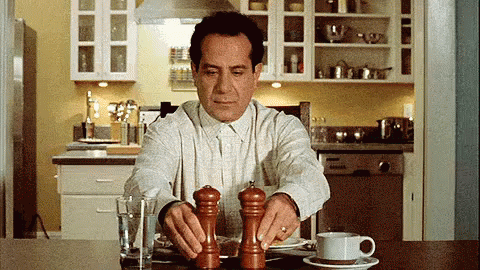When it comes to anxiety, nothing is truly ever simple or easy. Those who suffer from anxiety know firsthand that having the disorder makes even the most normal things difficult. While many people live their lives easily–wake up, shower, eat breakfast, go to work, etc.–those with anxiety struggle to get through normal routines and everyday experiences.
While not every single moment of every single day is an obstacle (at least, not for most), there are days where we feel as though it’s impossible to even get out of bed. Nothing about having anxiety is simple or easy. In fact, it’s insanely complex–even more so when people don’t realize you are in a bad “state” or having an off day.
There’s a societal narrative that correlates anxiety attacks to simply hyperventilating and “breathing into a brown paper bag.” The media we’ve grown up around has cemented the image of an “anxiety attack” into our minds of being just that–sheer panic and inability to catch one’s breath. In reality–anxiety attacks can feel this way–but, it’s not always the case. Many people suffer from anxiety, in fact, according to The Anxiety and Depression Association of America, 40 million Americans suffer from anxiety disorders (that’s over 18% of the population). I think it’s safe to say that not everyone suffers in the exact same way.
There are more warning signs of having a loved one suffer from anxiety and a severe anxiety attack that friends, partners, and loved ones should be aware of in order to help, or even give them a break/cut them some slack when things seem a bit off with them.
1. Irritability and testiness:
When someone is having a bad bout with their anxiety, they’re going to be slightly on edge. Anxiety doesn’t come easily–it often times consumes you (especially when you’re having a bad anxiety attack). For this reason, people who are struggling will be edgy and quick to “fly off the handle” when they feel as though they are being called out/attacked. If your friend or loved one isn’t on their game and you feel as though they’re off, don’t push them and pry, continuously asking them “why?” It will make them feel as though you’re putting them on the spot and cause them to lash out. Instead, ask them if they’re okay and see if they can use some help, or maybe even some space (day off).
2. Obsessive behavior:
Anxiety can cause one to feel as though everything is wrong and everything needs to be fixed. When having an attack, sometimes people obsess and nit-pick at things over and over again. This can be in the form of a physical behavior/habit like biting one’s nails, picking at dead skin, twirling hair. It can also be something that is behavioral like changing one’s hair color, nail color, or outfit numerous times. Other times, those suffering will do the same activity over again until they feel satisfied, like cleaning. According to Sally Winston, PsyD, co-director of the Anxiety and Stress Disorder Institute of Maryland in Towson:
The finicky and obsessive mind-set known as perfectionism “goes hand in hand with anxiety disorders. If you are constantly judging yourself or you have a lot of anticipatory anxiety about making mistakes or falling short of your standards, then you probably have an anxiety disorder.”
3. Hyperemotions:
When having a bad anxiety attack, your loved one may be a bit more emotional than normal. This means they can react to just about anything that triggers them. If something upsets them more easily, it’s a tell-tale sign they may be struggling with an anxiety attack. The truth behind having anxiety attacks is that people who are going through them are emotionally exhausted. We’re on a roller coaster of emotions at extremely high levels from ourselves to begin with, when adding in other people and their reactions, it puts us overboard sometimes.
4. Inability to concentrate/zoning out:
We’re going through a million thoughts a minute when having a bad attack, so it’s natural that we will zone out into our own heads. Ben Michaelis, PhD, a New York City-based clinical psychologist and founder of the YouTube channel One Minute Diagnosis. says that when people have anxiety attacks:
“[People will] feel like things are not real, or feel detached from oneself.”
Often times, it’s not the best for us to be “alone with our thoughts” because our thoughts can be extremely toxic and be triggering even worse bouts of anxiety for some, but it’s not as though we are able to just silence everything in our minds. The best course of action is to put our mind to something else, hopefully, helping ease the thoughts and panic in our minds.
5. Silence:
Many of those with anxiety, or even high-functioning anxiety, will be normal and talkative throughout the day and normally. If someone you know is usual social and has a day or two where they are much quieter or withdrawn, this could be a sign that they are suffering from anxiety attacks. It’s important to try and “get them out of their own heads,” but, don’t push them too hard.
The good news:
The good news about anxiety and panic attacks is that they don’t last forever. The more you become aware of the signs of incoming attacks, the better you will become at working through them. Eventually, with enough effort and work, you may be able to avoid them altogether.







